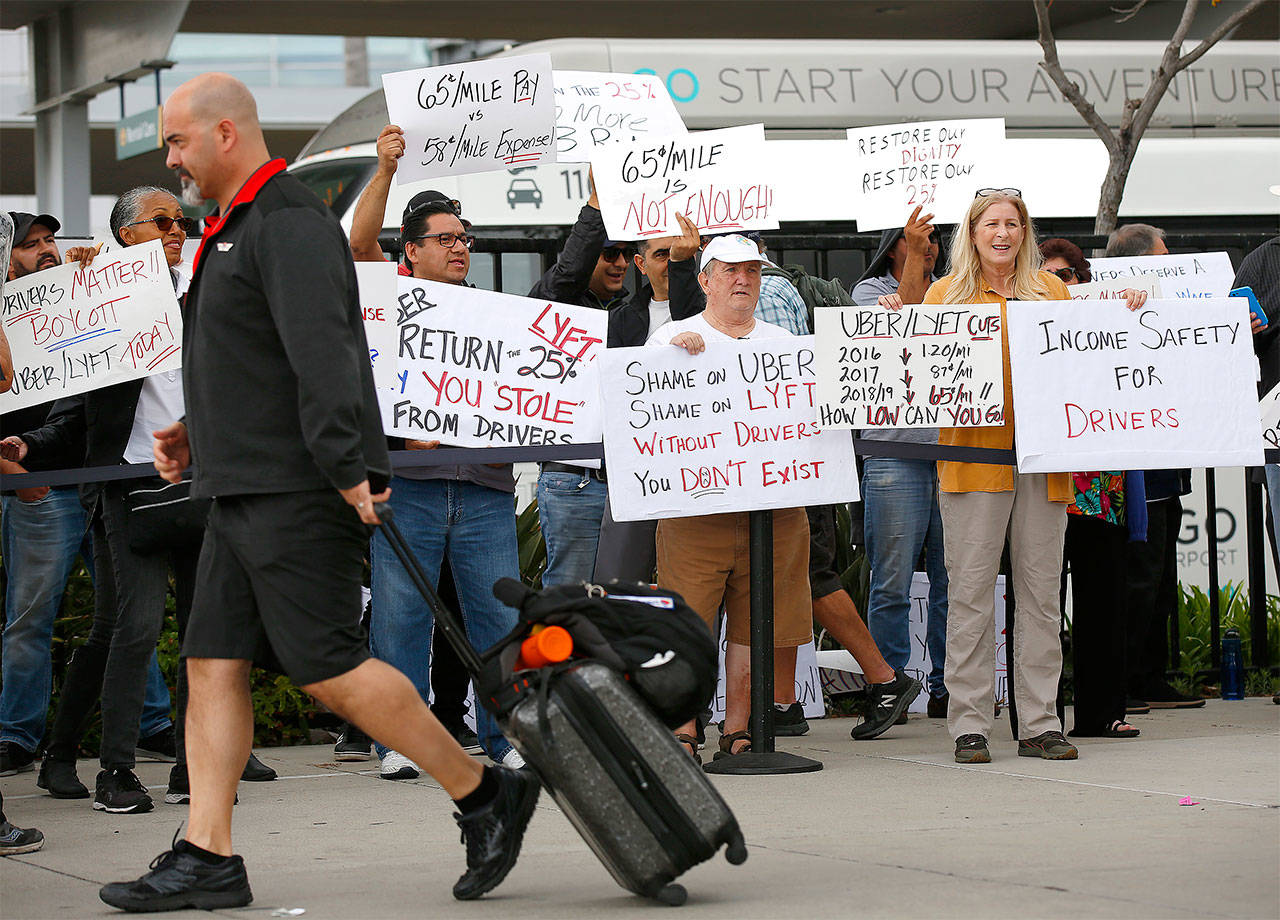By Leonardo Castaneda / The Mercury News
Millennials may have given rise to the hustle culture, but when it comes to putting in hours in the gig economy, Baby Boomers might have them beat.
Baby boomers —those born between 1946 and 1964 —earned the most money, took on the most gigs and earned the highest ratings on Wonolo, a platform where companies can find short-term workers.
“I think traditionally, people think of the gig workers as millennials,” said Beatrice Pang, vice president of strategy and finance at Wonolo. “We actually always knew that they are much broader. Our workers range from 18 years old to over 80 years old.”
Steve Gregg, who at 51 is just a few years shy of being a boomer, came to gig work late in his working life after an injury put a halt to his career in horticulture. He said he saw it as a way to pay the bills while he bounced back.
“I didn’t expect to fall in love with this, I really thought I would hate this work,” he said.
But Gregg, who lives in Antioch, Calif., and also drives for Uber and Lyft, said he’s “kind of fallen in love with the human race” over the course of some 14,000 rides in 2½ years.
“I think that maturity, perspective, investment play a role in how you do this work, how you treat the customers,” he said. “Years add to perspective, how much you’re willing to invest.”
Gig work gives older workers a way to earn additional income and can provide a flexible option between working full-time and total retirement, Pang said. But experts worry that a general lack of benefits, such as retirement accounts, sick paid leave or health insurance, could put workers at risk.
“It doesn’t come with benefits for the future, it doesn’t set people up to have a stable retirement and we need to think about policies that can address that,” said Shelly Steward, a research manager with the Future of Work Initiative, part of the nonpartisan Aspen Institute.
Steward said it’s hard to draw conclusions about the entire gig workforce from one company’s data, but the number of workers in their 50s and 60s could be a red flag.
“There’s also a broader question of why are people needing to do this in the first place,” she said. “If you have a lot of people at retirement age who are pursuing gig work, it probably means that several years ago something wasn’t quite in place to allow them to retire.”
Whatever their reason for taking up gig work, boomers on Wonolo are outearning any other age group, with average monthly earnings in the Bay Area of $1,003 a month, according to that company’s analysis of the users on its platform. Generation X workers, born between 1965 and 1980, earned an average of about $949 a month. Millennials, born between 1981 and 1996, earned about $777 a month, and Gen Z, the youngest generation in the workforce, earned about $616 a month.
Nationwide, about a third of boomers worked more than three gigs on Wonolo per week compared to 22% of millennials. Boomers and Gen Xers also tied with an average rating from the companies that hired them of 4.86 out of 5, slightly higher than millennials’ 4.81 average.
“Boomers also do some of the most physical gigs,” Pang said. “You would think that they’re picking the administrative, customer service work that doesn’t require the physical work, but they actually do a lot of physical work like fulfillment warehousing and general labor.”
The prospect of extra money first drew Lauren Swigger to the gig economy, via ride-hailing apps Uber and Lyft. Swigger, a boomer who asked that her exact age not be revealed, started driving after she said she was evicted from her apartment in San Francisco’s Mission district.
“When I actually started driving for Lyft, I thought of it as an extension of my spiritual practice,” Swigger said. “Here’s something I can do and be of service… and I will make a little extra income.”
Swigger, a massage therapist, was already used to being an independent contractor but lost most of her clients when she moved to Oakland. She said older workers probably have more patience and are more comfortable sticking with gig work.
“They also don’t have very many other options,” she said. “People in their 50s and 60s, I certainly wouldn’t want to work at McDonald’s.”
Pang said attracting a broad range of workers is a key part of Wonolo’s strategy, particularly because older contractors have been a hit with companies that use their platform.
“Overall, requesters really enjoy their reliability, they are usually really hard working, really attentive and really care for providing the best job performance,” she said.
Wonolo built its request platform in a way that wouldn’t allow users to discriminate based on age or gender by pairing workers and employers purely based on the specific task requested and workers’ ratings, Pang said. The company also offers its contractors access to a platform that helps them navigate the Affordable Care Act’s healthcare marketplace.
With or without benefits, Gregg and Swiggler both said gig work drew them in because it was an accessible way to make money, but declining driver rates at Uber and Lyft have made them seek employment in their previous careers. Both have also been involved in public efforts to increase drivers’ pay.
“I would do this for the rest of my life if I could make enough money at it because I’ve never enjoyed my job more,” Gregg said.
Talk to us
> Give us your news tips.
> Send us a letter to the editor.
> More Herald contact information.

























